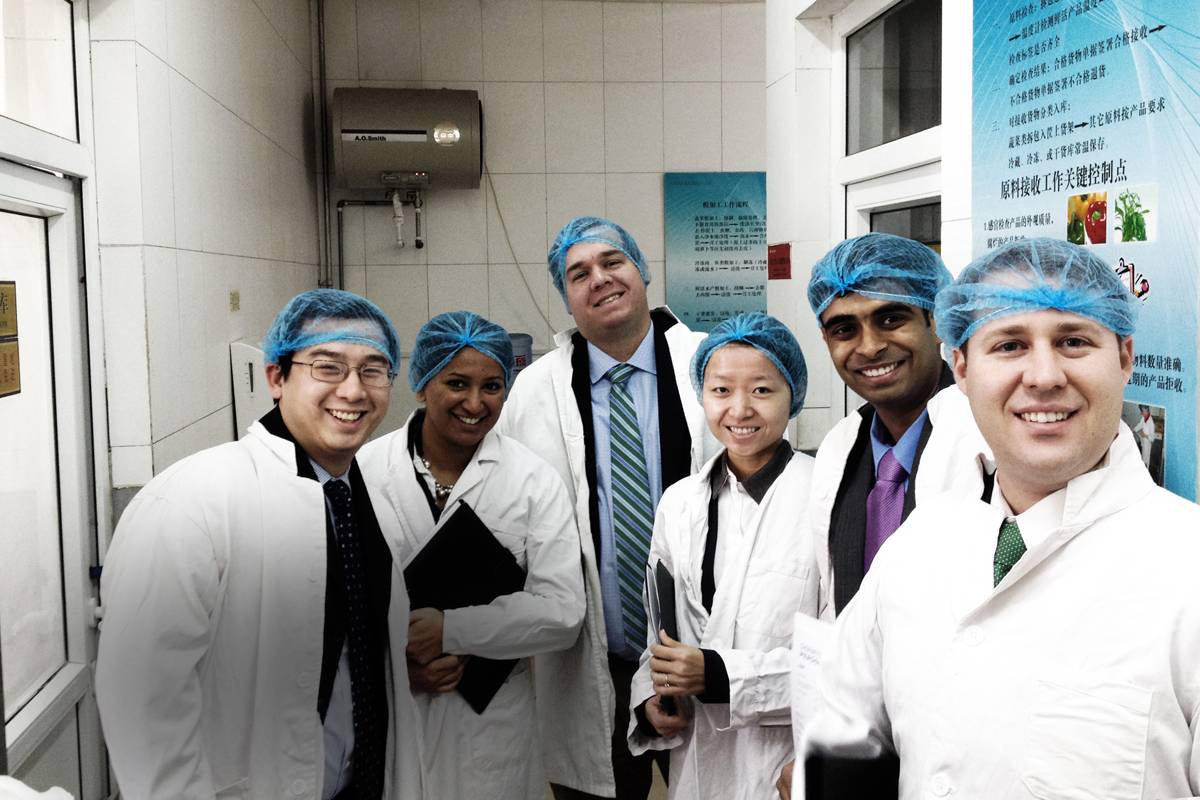Learning By Leaving
TuckGO, the new global learning requirement, gets going.

TuckGO, the new global learning requirement, gets going.
On a warm day in late August of this academic year, marketing professor and associate dean for the MBA program Praveen Kopalle introduced 286 T’17s to the new global learning requirement known as TuckGO. In addition to being one of the most diverse classes in Tuck’s history, they are also the first Tuck students who must leave the U.S. for some period of time to obtain their MBA degree. Kopalle could have explained TuckGO in terms of trends in the business world and the new demands they put on MBA graduates. Instead, he told a story.
The story was about Gillette’s effort to gain a toehold in the men’s shaving market in India. In 2002, Gillette developed the two-bladed Vector razor for Indian men, Kopalle explained. It was equipped with a plastic bar below the blades that could slide down to unclog the razor. The company, which was based in Boston, tested the product with Indian students at the nearby Massachusetts Institute of Technology. The students liked the new razor and considered it an improvement over the other available options. So Gillette went ahead and launched the razor in India, at a price of 72 cents. It was a massive failure. Why? Because men in India rinse their razors in a cup of water, not under a faucet like the MIT students, and the razors were staying clogged. It turned out that most Indian men don’t have access to something that was a key to the Vector’s design: running water.
Procter & Gamble acquired Gillette in 2005 and, three years after that, made another attempt at the Indian shaving market. This time, however, they actually went to India to design the product. Executives talked with consumers there, observed their daily routines, and hosted small group discussions. They learned that Indian men used old-fashioned dual-sided razors, and spent a half-hour shaving because they were afraid of cutting themselves if they were sloppy. Out of that experience came the Gillette Guard, a single-bladed safety razor with a specially designed handle and a small comb. They priced it at 34 cents. The razor was a success, gaining P&G a 9 percent market share and exhibiting faster growth than any other P&G brand in India. “That taught us the importance that you really need to go where your consumers are,” Alberto Carvalho, a vice-president at P&G, told The Daily Mail, “not just to talk to them, but observe and spend time with them to gather the key insight.”
Kopalle heard the same sentiment two years ago, when he chaired the Tuck MBA Task Force, which was researching ways to improve Tuck’s curriculum. “We asked advisory board members and overseers to rate the importance of a global mindset, on a scale of 1 to 5,” Kopalle said. “They all gave it a 5.” In response, Kopalle and others spent a year designing TuckGO, and another year piloting the program. What they created fits the broad message to students that Tuck has advocated since Matthew Slaughter became dean: challenge yourself.
TuckGO provides numerous ways for students to challenge themselves, while being immersed in a foreign culture. There are four different types of global experiences that fulfill the requirement: Global Insight Expeditions, OnSite Global Consulting trips, Global First-Year Projects, and exchange programs. Students must complete at least one of the programs, for which they receive course credit, in order to graduate. Although each experience is different, students completing a global program to fulfill the TuckGO requirement must write a paper reflecting on their trip, including thoughts about observations, insights, and teachable points of view. Much of the cost for one TuckGO course is included in the MBA tuition, and many students choose to go on multiple trips and cover the extra expense.
“These experiences are about empathy,” Kopalle said, “where students can put themselves in the shoes of the person they’re observing and develop insights out of it.” Those insights, in turn, lead to actionable intelligence about how to do business in another culture—intelligence that has no domestic substitute. “Students are really excited about this opportunity to learn about a different culture,” said Kopalle, “and as a dean I’m excited that we can offer it to them.”